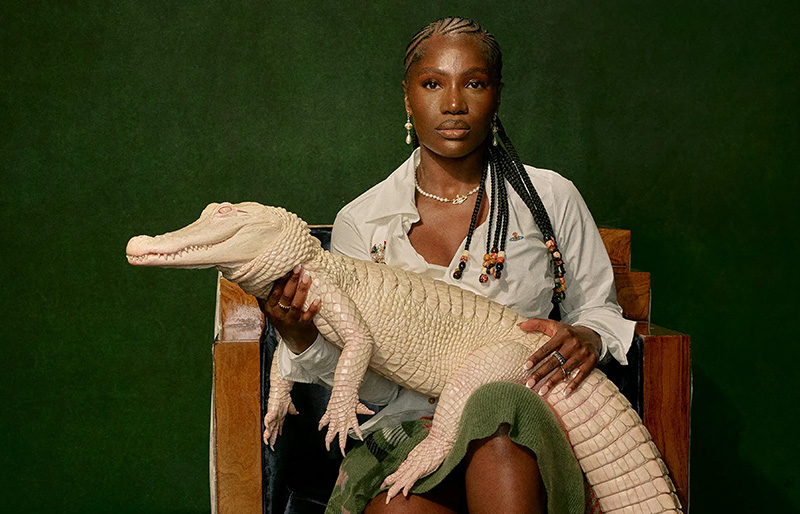Smoke Signals
Whitman-Walker Joins Efforts to Prohibit Smoking
In Washington’s ongoing tug-o-war over tobacco, the Whitman-Walker Clinic Board of Directors voted late last month to support expansion of the city’s smoke-free workplace laws to include the city’s nightclubs, bars and restaurants.
“As the leading provider of HIV-related medical care and social services and as a provider of LGBT health services, Whitman-Walker Clinic must take a stand in support of legislation that would provide the most protection to the community at large,” said Roberta Geidner-Antoniotti, the clinic’s interim executive director, in a prepared statement. “We believe it is in the best interest of our current and future clients and for the community we serve to help pass smoke-free workplace legislation and make D.C. a healthier place for all of its citizens.”
The current legislation on the City Council’s plate is the Smokefree Workplaces Act of 2005 and the Occupational Safety and Health Amendment Act of 2005. Both items are sitting in the council’s Committee for Public Works and the Environment, chaired by Carol Schwartz (R-At Large).
“I think this is a large step in framing this as an issue for LGBT and HIV-positive individuals. It’s important for our community to understand how this impacts us,” says David Mariner, a paid consultant to the National Coalition for LGBT Health, who specializes in tobacco use in the gay community. “We’d really like to see support from Jim Graham (D-Ward 1), David Catania (I-At Large) and Carol Schwartz.”
Mariner points specifically to Graham and Catania because they are gay. He includes Schwartz, he says, because she has long been allied with the district’s LGBT community and because she is a board member at Whitman-Walker Clinic. According to the clinic’s media relations manager Chip Lewis, the board supported the smoke-free measure “overwhelmingly,” though he declined to give an exact count. John Abbot, Schwartz’s executive assistant on the council says that overwhelming majority did not include Schwartz. So that leaves either bill before the 13-member council with five firm supporters, and an outcome that is anybody’s guess. Still, that one of the city’s highest-profile LGBT organizations has taken a position in the smoking debate has gotten attention on both sides.
“We had encouraged [the WWC board], but we don’t mess with other groups,” says Kathleen DeBold, executive director of the Mautner Project, the D.C.-based national lesbian health organization. “We’re really happy. We think it’s great…. We see municipalities going smoke-free, countries going smoke-free. People have been moving towards it. I think it’s just a matter of time.”
Mark Lee, perhaps the city’s best-known proponent of nightlife and the hospitality industry, including his own Sunday night “Lizard Lounge” events, does not agree.
“I — and I think a lot of other people who own or manage local nightlife in our community — was disappointed that the clinic board made this decision without even the courtesy of consulting with those who would be affected by any such legislation,” says Lee, who was unaware of the board’s agenda. “Hospitality and nightlife businesses are not pro-smoking, but we do believe in freedom of choice. I think the issue for the clinic would be, how can they or the community at large encourage people not to smoke if that’s the public-health policy goal? Reducing smoking through forced social engineering hardly seems appropriate as a public action agenda…. I do not believe that the decision by the clinic board will have much effect [on pending legislation]. I believe it is coercion to approach this issue this way.”
Mariner, like DeBold, says the tide is moving in favor of smoke-free public spaces. He likens opposition to such legislation to opposition to another progressive cause — equality for gays. “It’s kind of like civil unions in Vermont,” Mariner opines. “Once people actually experience the reality of the situation and understand there is nothing to be afraid of, you establish a beachhead. From there, people from other areas are more open to looking at the issue. I think the same thing is happening with laws prohibiting smoking in the workplace. We’ve seen them in New York, Montgomery County, and see that there isn’t harm to businesses. And people are living healthier lives. Once those realities sink in, we’d think everyone would be open to making their town smoke-free.”
Lee would be the first to question Mariner’s “realities,” claiming that studies on the economic impact of smoking bans that suggest businesses are not harmed by such bans are seriously flawed. He also argues that efforts within the gay community to ban smoking in public places may be the result of sophisticated funding in that area from the American Legacy and Robert Wood Johnson foundations.
DeBold counters that the Mautner Project has been fighting against tobacco use for 15 years, but has received funds from the American Legacy Foundation for only two. “This was an important health issue before the funding,” says DeBold, a former smoker. “It will continue to be an important issue after the funding is gone.”
It is easier to find agreement from both sides of the debate when it comes to the facts of how the LGBT community is affected by tobacco. According to information presented by the American Cancer Society, for example, 59 percent of LGBT youth use tobacco, compared to 35 percent of non-LGBT youth; smoking accelerates the onset of AIDS among people with HIV; and tobacco kills at least 30,000 gay and lesbian Americans each year.
There are more bullet points where those came from. As medical director for Whitman-Walker Clinic, Dr. Philippe Chiliade is familiar with them. While he supported the board’s decision to support legislation for smoke-free public places, he cautions against anti-smoking zeal.
“My point of view is that we know the health risks of smoking,” he observes. “If someone wants to continue, we should find some kind of accommodation. I think people need the liberty to make the decision they want. If they’re adults, they should make their own decisions. But we don’t want people to expose other patrons to smoke.”
While the clinic’s board meeting was private, the community should have a chance to sound off on this issue soon. Schwartz’s office says the council member plans to hold hearing on the two related bills before July 15.
Support Metro Weekly’s Journalism
These are challenging times for news organizations. And yet it’s crucial we stay active and provide vital resources and information to both our local readers and the world. So won’t you please take a moment and consider supporting Metro Weekly with a membership? For as little as $5 a month, you can help ensure Metro Weekly magazine and MetroWeekly.com remain free, viable resources as we provide the best, most diverse, culturally-resonant LGBTQ coverage in both the D.C. region and around the world. Memberships come with exclusive perks and discounts, your own personal digital delivery of each week’s magazine (and an archive), access to our Member's Lounge when it launches this fall, and exclusive members-only items like Metro Weekly Membership Mugs and Tote Bags! Check out all our membership levels here and please join us today!



















